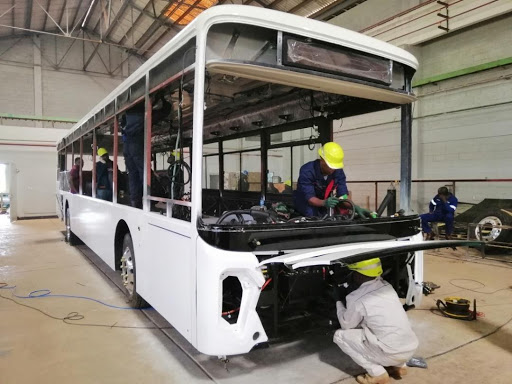#OutToLunch Extend import duty exemption on electric vehicles and hybrids to assembling parts
By Denis Jjuuko
Taxes paid upon importation of vehicles in Uganda have largely been assessed based on the year of manufacture, engine size of the vehicle, and sometimes the type of vehicle. A tractor, for example, pays less import duty than a luxurious saloon car. A tractor is used for production whereas a saloon car is for ‘eating life.’
What hasn’t been clear is how much tax one would pay if they imported an electric or even hybrid vehicle. Electric vehicles use batteries which are charged from time to time while hybrids may use both internal combustion engines and batteries. Electric vehicles have no engine capacity as they use none so they can’t be assessed based on engine size. May be based on battery size? But that isn’t clear as well.
With the new tax amendments that are to be enforced from July 1 as Uganda began yet another financial year is that electric vehicles (EVs) and hybrids won’t have to pay any import duty. The same applies to motorcycles. The rationale behind this is to “promote electric vehicles and reduce pollution” according to the document issued by the Uganda Revenue Authority (URA).
Kampala is one of the most polluted cities in the world due largely to old vehicles that we import into the country. We also have narrow roads and lack an effective public transport system thereby leading to heavy traffic jams during peak hours.
Also, because a car is a status symbol in Uganda, whoever gets some ka-money or qualifies for a loan, the first thing they think about is a car. They call it literally walking while seated! Many times, the car the majority of these people can afford is about 15 years old and at the end of its life journey. Such cars are heavy polluters of the environment.
It is, therefore, commendable that the Ministry of Finance saw it fit to scrap import duty on EVs and hybrids. The world is moving in that direction and electric mobility is the talk everywhere. We are at the cusp of the most significant change in mobility in more than a century even though EVs existed long before internal combustion engines.
So if Ugandans embrace EVs and hybrids, new businesses will be created with entrepreneurs investing in charging systems and infrastructure, hopefully at the same level they have done with fuel stations that exist everywhere you turn. Repair and maintenance shops will be set up and even driving schools.
Technical schools and universities teaching motor vehicle engineering and such other courses should start paying more attention to EVs and hybrids and the whole electric mobility value chain. Young people seeking careers should do the same too to prepare themselves for a period of complete EV domination.
Africa should stop exporting our minerals as raw materials rather as complete products that are geared at enabling electric mobility. We can export automotive glass instead of silica. We can process the rare minerals instead of sending them as raw materials. More than 60 years after independence, we can’t still be doing the same things we did back then. Otherwise, nothing will change. If we only think of importing, we can’t provide the jobs young people need to live meaningful lives.
That is why even though I am generally happy with the tax amendment that scraps import duty on EVs and hybrids, it still an incentive to import rather than make in Uganda. So if I import an EV or hybrid vehicle made in Japan or Germany, I would not pay import duty. By importing that car, I would have denied young people jobs and even more money through taxes to the government.
The tax amendment should have included knockdown parts required for assembling or manufacturing vehicles here. The government of Uganda buys about 2,000 vehicles every year. If just 1,000 were made or assembled here, we would significantly create jobs and build our capacity and within a few years be able to export to the region. The regional market for cars is almost a million units annually.
But car makers won’t be able to do it unless they are forced. If incentives are given for importing, that is what they will do. That defeats Uganda’s aspirations as enshrined in the 2040 Vision and even the president’s swansong of import substitution. You substitute importation by making here and that is where we need to focus.
The writer is a communication and visibility consultant. djjuuko@gmail.com

